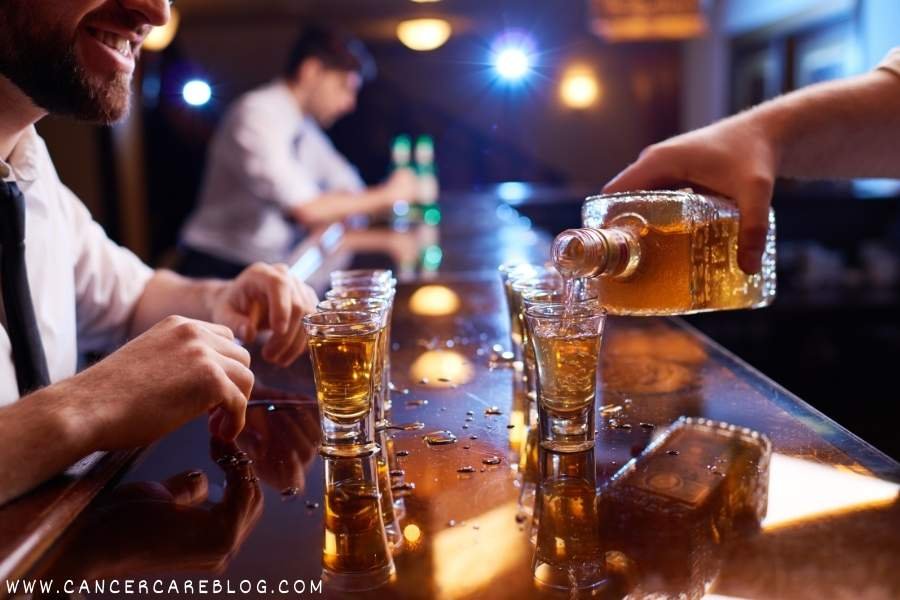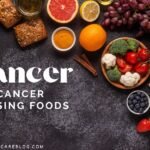Alcohol is a common part of many cultures, celebrations, and social events.
But few people realize the strong connection between alcohol & cancer.
In this article, we’ll explore how alcohol causes cancer, what the research says about the risk, and whether moderate drinking is safe.
If you or your loved ones drink, this information is important to understand.
The Connection Between Alcohol and Cancer
The link between alcohol & cancer is well established by health organizations like the World Health Organization (WHO) and the American Cancer Society.
Drinking alcohol can increase the risk of developing several types of cancer, including:
-
Mouth and throat cancer
-
Esophagus cancer
-
Liver cancer
-
Breast cancer (especially in women)
-
Colon and rectal cancer
Even moderate drinking has been associated with a small increase in cancer risk.
How Alcohol Causes Cancer
Understanding how alcohol causes cancer helps explain why even low levels of drinking matter.
Here’s what happens:
1. Alcohol Breaks Down Into Acetaldehyde
When you drink alcohol, your body converts it into acetaldehyde — a toxic chemical.
Acetaldehyde damages DNA and prevents cells from repairing themselves.
Damaged cells can eventually turn into cancer.
2. Increased Hormone Levels
Alcohol can raise levels of estrogen, a hormone linked to the development of breast cancer.
3. Body Tissue Damage
Alcohol irritates and inflames tissues in the mouth, throat, esophagus, and liver, making them more vulnerable to cancerous changes.
4. Poor Nutrient Absorption
Drinking heavily can reduce the body’s ability to absorb important nutrients like folate.
Low folate levels have been linked to certain types of cancer, especially colon cancer.
How Much Alcohol Increases Cancer Risk?
There is no safe amount of alcohol when it comes to cancer risk.
The more you drink, the higher your risk becomes.
However, the increase in risk also depends on:
-
How much you drink (amount)
-
How often you drink (frequency)
-
How long you have been drinking (years)
Research shows:
-
Even one drink a day slightly increases the risk of breast and esophageal cancers.
-
Heavy drinkers (3+ drinks per day) have a significantly higher risk of mouth, liver, colon, and throat cancers.
Important:
Binge drinking (consuming many drinks at once) also increases cancer risk more than moderate drinking spread over time.
Which Cancers Are Most Linked to Alcohol?
Here’s a quick look at cancers strongly associated with alcohol:
| Cancer Type | Risk Increase (%) |
|---|---|
| Mouth, Throat | Up to 5 times higher |
| Esophagus | Up to 5 times higher |
| Liver | 2–3 times higher |
| Breast | 7–10% higher with one drink daily |
| Colon, Rectum | 1.2 times higher |
As you can see, the link between alcohol and cancer is quite serious.
What About Red Wine or “Healthier” Alcohols?
You might have heard that red wine is “healthy” because it contains antioxidants like resveratrol.
While antioxidants are good, the alcohol itself still increases cancer risk.
There is no type of alcohol — beer, wine, or liquor — that is “safe” when it comes to cancer.
All forms of alcohol can potentially cause DNA damage.
Can You Reduce Your Risk?
Yes, you can take steps to lower your cancer risk related to drinking:
-
Drink less: Cutting back or avoiding alcohol completely is the best choice.
-
Know your limits: If you choose to drink, stay within low-risk drinking guidelines (no more than one drink a day for women, two for men).
-
Take alcohol-free days: Giving your body time to recover reduces overall exposure.
-
Eat healthy: A diet high in fruits and vegetables can help protect your cells.
👉 Quick Facts: Alcohol and Cancer in Numbers
📌 Even one drink per day can increase breast cancer risk by 7–10%.
📌 Heavy drinking raises mouth and throat cancer risk by up to 5 times.
📌 Globally, 4% of all cancers are directly linked to alcohol use.
📌 Reducing alcohol intake can lower cancer risk at any age, even after years of drinking.
📌 No type of alcohol — beer, wine, or liquor — is safe from a cancer risk perspective.
Final Thoughts: Is It Worth It?
The connection between alcohol and cancer is real and scientifically proven.
Even moderate drinking increases risk, although the probability varies depending on several factors.
You don’t have to quit drinking overnight — but understanding how alcohol causes cancer can help you make better, healthier decisions.
Remember:
Small lifestyle changes today could protect you from big health problems tomorrow.



